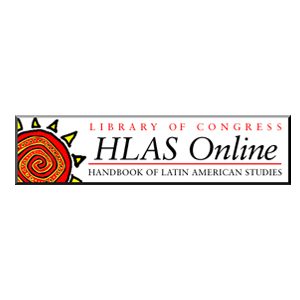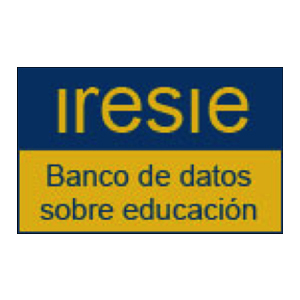Oportunidades de los videojuegos bélicos para activar el pensamiento crítico: opiniones de los jugadores
Opportunities for War Video Games to Activate Critical Thinking: Players Opinions
Oportunidades dos videogames bélicos para ativar o pensamento crítico: opinião dos jogadores
El presente artículo de investigación analiza la potencialidad de los videojuegos bélicos para activar el pensamiento crítico de los jugadores, entendiendo el proceso cognitivo que les posibilita explicar la guerra, conocer su naturaleza y evaluar sus consecuencias desde una perspectiva ética. El estudio analiza la opinión de una muestra de usuarios de videojuegos bélicos (N =213) sobre distintos aspectos inherentes a las dimensiones que lo definen: cognitiva, personal-actitudinal, ética, lógica argumentativa y expresivo-comunicativa. La metodología adoptada es mixta: a) cualitativa, centrada en el diseño del cuestionario Critical thinking wgv (73 ítems), validado por el método Delphi; y, b) cuantitativa, focalizada en el análisis de sus opiniones sobre las oportunidades que estos videojuegos les ofrecen para estimular su pensamiento crítico, atendiendo a las dimensiones establecidas. Los resultados muestran que estos juegos les permiten conocer la naturaleza de los conflictos bélicos –especialmente históricos–, sus causas y consecuencias, al mostrarlos crudamente. Además, les invitan a reflexionar sobre los intereses de la guerra y los daños colaterales; asimismo, los recursos audiovisuales favorecen su inmersión en la historia, aunque limitan su libertad para tomar decisiones en el juego. Las mujeres son más críticas frente a la representación y justificación de la guerra, señalan que estos videojuegos la banalizan al considerar la violencia necesaria para defenderse; también denuncian que no fomentan la empatía con las víctimas y afianzan los estereotipos raciales y de género. En conclusión, estos juegos potencian especialmente las dimensiones cognitiva, lógica argumentativa y expresivo-comunicativa, inherentes al pensamiento crítico hacia la guerra, pero no la personal-actitudinal y ética.
Pensamiento Crítico, Método Delphi, Videojuegos, Guerra, Metodología Mixta (es)
pensamento crítico, método Delphi, videogames, metodologia mista, guerra (pt)
Alhabash, S., & Wise, K. (2015). Playing their game: changing stereotypes of Palestinians and Israelis through videogame play. New Media & Society, 17(8), 1358-1376. https://doi.org/10.1177/1461444814525010 DOI: https://doi.org/10.1177/1461444814525010
Boltz, L.O. (2017). “Like Hearing From Them in the Past”: The Cognitive-Affective Model of Historical Empathy in Video Game Play. International Journal of Gaming and Computer-Mediated Simulations (IJGCMS), 9(4), 1-18. DOI: 10.4018/IJGCMS.2017100101 DOI: https://doi.org/10.4018/IJGCMS.2017100101
Bos, D. (2018). Answering the Call of Duty: Everyday encounters with the popular geopolitics of military-themed videogames. Political Geography, 63, 54-64. https://doi.org/10.1016/j.polgeo.2018.01.001 DOI: https://doi.org/10.1016/j.polgeo.2018.01.001
Bourgonjon, J., & Soetaert, R. (2013). Video games and citizenship. CLCWeb: Comparative Literature and Culture, 15(3). https://doi.org/10.7771/1481-4374.2245 DOI: https://doi.org/10.7771/1481-4374.2245
Burgess, M.C., Dill, K.E., Stermer, S.P., Burgess, S.R., & Brown, B.P. (2011). Playing with prejudice: The prevalence and consequences of racial stereotypes in video games. Media Psychology, 14(3), 289-311. doi: 10.1080/15213269.2011.596467 DOI: https://doi.org/10.1080/15213269.2011.596467
Butler, C., & Gates, S. (2009). Asymmetry, parity, and (civil) war: Can international theories of power help us understand civil war?. International Interactions, 35(3), 330-340. https://doi.org/10.1080/03050620903084877 DOI: https://doi.org/10.1080/03050620903084877
Chang, J.H., & Bushman, B.J. (2019). Effect of exposure to gun violence in video games on children’s dangerous behavior with real guns: a randomized clinical trial. JAMA Network Open, 2(5), e194327. doi:10.1001/jamanetworkopen.2019.4327 DOI: https://doi.org/10.1001/jamanetworkopen.2019.4319
Clearwater, D.A. (2010). Living in a militarized culture: war, games and the experience of US empire. TOPIA: Canadian Journal of Cultural Studies, 23, 260-285. https://doi.org/10.3138/topia.23-24.260 DOI: https://doi.org/10.3138/topia.23-24.260
Cummins, G. (2010). Sex, Violence and Videogames. Communications Lawyer, 27(2). https://bit.ly/3maLk0m
Del Moral, M.E. y Rodríguez, C. (2020). War video games: Edu-communicative platforms to develop critical thinking against war? Journal on Computing and Cultural Heritage, 13(4), 1-13. https://doi. DOI: https://doi.org/10.1145/3404196
org/10.1145/3404196
Del Moral, M.E., Villalustre, L., Yuste, R. & Esnaola, G. (2012). Evaluación y diseño de videojuegos: generando objetos de aprendizaje en comunidades de práctica. Revista de Educación a Distancia, 33. http://www.um.es/ead/red/33/
Dyer-Witheford, N., & De Peuter, G. (2009). Games of Empire: Global Capitalism and Video Games. Minneapolis: University of Minnesota Press.
Engelhardt, C.R., Bartholow, B.D., Kerr, G.T., & Bushman, B.J. (2011). This is your brain on violent video games: Neural desensitization to violence predicts increased aggression following violent video game exposure. Journal of Experimental Social Psychology, 47(5), 1033-1036. https://doi.org/10.1016/j.jesp.2011.03.027 DOI: https://doi.org/10.1016/j.jesp.2011.03.027
Engerman, J.A. (2016). Call of duty for adolescent boys: an ethnographic phenomenology of the experiences within a gaming culture. (Doctoral Thesis). The Pennsylvania State University. https://bit.ly/3ffHMp0
Ennis, R.H. (1985). A logical basis for measuring critical thinking skills. Educational leadership, 43(2), 44-48.
Foster, H. (2016). How do Video Games Normalize Violence? A Qualitative Content Analysis of Popular Video Games (Doctoral Thesis). Northern Arizona University. https://bit.ly/2PenZf4
García, F. (2006). Videojuegos y virtualidad narrativa. ICONO 14, Revista de comunicación y tecnologías emergentes, 4(2), 1-24. DOI: https://doi.org/10.7195/ri14.v4i2.384
García-Moreno, R. (2017). La Historia a través de los videojuegos: La Guerra Fría en la saga Metal Gear (Trabajo Fin de Máster). Universidad de Valladolid. https://bit.ly/2W0jaKU
Gish, H. (2010). Playing the Second World War: Call of Duty and the telling of history. Eludamos. Journal for Computer Game Culture, 4(2), 167-180. DOI: https://doi.org/10.7557/23.6042
Hall, S. (1997). The Spectacle of the Other. En S. Hall (ed.), Cultural Representations and Signifying Practices, (pp. 225-290). Londres: The Open University.
Hartmann, T. (2017). The ‘Moral Disengagement in Violent Videogames’ Model. Game Studies, 17(2). https://bit.ly/2GTPHgh
Holdijk, E. (2016). Playing the Great War: Getting Historians Involved in Video Games (Doctoral dissertation). The University of Victoria, Canada. https://bit.ly/2tP1YMA
Imaz, J.I. (2009). Videogames and education: a first empirical research in the Basque Country. In M. Pivec (ed.), Proceedings of the 3rd European Conference on Games Based Learning (pp. 195-201). Graz, Austria: Academic Conferences Ltd. https://bit.ly/2BJUSwP
Jarvis, L., & Robinson, N. (2019). War, time, and military videogames: heterogeneities and critical potential. Critical Military Studies https://doi.org/10.1080/23337486.2019.157301 DOI: https://doi.org/10.1080/23337486.2019.1573014
Jørgensen, K. (2016). The positive discomfort of spec ops: The line. Game studies, 16(2). https://bit.ly/3jXbouO
Linstone, H.A., & Turoff, M. (Eds.). (1975). The delphi method. Boston, MA: Addison-Wesley.
Loeber, R. & Hay, D. (1997). Key issues in the development of aggression and violence from childhood to early adulthood. Annual Review of Psychology, 48, 371-410. https://doi.org/10.1146/annurev.psych.48.1.371 DOI: https://doi.org/10.1146/annurev.psych.48.1.371
Metzger, S.A., & Paxton, R.J. (2016). Gaming history: A framework for what video games teach about the past. Theory & Research in Social Education, 44(4), 532-564. https://doi.org/10.1080/00933104.2016.1208596 DOI: https://doi.org/10.1080/00933104.2016.1208596
Modelski, G., & Morgan, P.M. (1985). Understanding global war. Journal of Conflict Resolution, 29(3), 391-417. https://doi.org/10.1177/0022002785029003002 DOI: https://doi.org/10.1177/0022002785029003002
Navarro, J. (2017). El videojugador. Barcelona: Anagrama.
O’Neill, K., & Feenstra, B. (2016). ‘Honestly, I Would Stick with the Books’: Young Adults’ Ideas about a Videogame as a Source of Historical Knowledge. Game Studies, 16(2). http://gamestudies.org/1602/articles/oneilfeenstra
Paul, R., & Elder, L. (2007). A Guide for Educators to Critical Thinking Competency Standards: Standards, Principles, Performance Indicators, and Outcomes with a Critical Thinking Master Rubric. California, USA: Rowman & Littlefield Publishers/The Foundation for Critical Thinking. https://bit.ly/33C9qaB
Peck, M. (24 de abril de 2008). US Spies Use Custom Videogames to Learn How to Think. Wired, in https://bit.ly/30eU64h
Pötzsch, H. (2017). Selective realism: Filtering experiences of war and violence in first-and third-person shooters. Games and culture, 12(2), 156-178. https://doi.org/10.1177/1555412015587802 DOI: https://doi.org/10.1177/1555412015587802
Robinson, N. (2019). Military Videogames: More Than a Game. The RUSI Journal, 164(4), 10-21. https://doi.org/10.1080/03071847.2019.1659607 DOI: https://doi.org/10.1080/03071847.2019.1659607
Rollings, A., & Adams, E. (2003). Andrew Rollings and Ernest Adams on game design. San Francisco, California: New Riders.
Šisler, V. (2008). Digital Arabs: Representation in video games. European Journal of Cultural Studies, 11(2), 203-220. https://doi.org/10.1177/1367549407088333 DOI: https://doi.org/10.1177/1367549407088333
Sjoberg, L., & Via, S. (2010). Conclusion: The interrelationship between gender, war and militarism. In L. Sjoberg & S. Via. (eds). Gender, war, and militarism: feminist perspectives, (pp. 231-237). Santa Bárbara, California: Praeger/ABC-Clio.
Tan, V. (2017). An examination of singaporean video gamers perceptions of female video game characters. (Degree Thesis). University of Singapore. https://bit.ly/33pHd9V
Venegas, A. (2019). Memoria y representación de la guerra en el videojuego. Artículo en el blog Presura. https://bit.ly/3hWh5aG
Zagal, J. (2017). War Ethics: A Framework for Analyzing Videogames. Proceedings of the 2017 DiGRA International Conference, 14(1). Melbourne, Australia: DIGRA. https://bit.ly/32jLMBF
APA
ACM
ACS
ABNT
Chicago
Harvard
IEEE
MLA
Turabian
Vancouver
Descargar cita
Citaciones

Métricas PlumX
Visitas
Descargas
Recibido: 29 de septiembre de 2020; Aceptado: 27 de diciembre de 2020
Resumen
El presente artículo de investigación analiza la potencialidad de los videojuegos bélicos para activar el pensamiento crítico de los jugadores, entendiendo el proceso cognitivo que les posibilita explicar la guerra, conocer su naturaleza y evaluar sus consecuencias desde una perspectiva ética. El estudio analiza la opinión de una muestra de usuarios de videojuegos bélicos (N =213) sobre distintos aspectos inherentes a las dimensiones que lo definen: cognitiva, personal-actitudinal, ética, lógica argumentativa y expresivo-comunicativa. La metodología adoptada es mixta: a) cualitativa, centrada en el diseño del cuestionario Critical thinking WCV (73 ítems), validado por el método Delphi; y, b) cuantitativa, focalizada en el análisis de sus opiniones sobre las oportunidades que estos videojuegos les ofrecen para estimular su pensamiento crítico, atendiendo a las dimensiones establecidas. Los resultados muestran que estos juegos les permiten conocer la naturaleza de los conflictos bélicos -especialmente históricos-, sus causas y consecuencias, al mostrarlos crudamente. Además, les invitan a reflexionar sobre los intereses de la guerra y los daños colaterales, asimismo, los recursos audiovisuales favorecen su inmersión en la historia, aunque limitan su libertad para tomar decisiones en el juego. Las mujeres son más críticas Trente a la representación y justificación de la guerra, señalan que estos videojuegos a banalizan al considerar la violencia necesaria para defenderse; también denuncian que no fomentan la empatia con las víctimas y afianzan los estereotipos raciales y de género. En conclusión, estos juegos potencian especialmente las dimensiones cognitiva, lógica argumentativa y expresivo-comunicativa, inherentes al pensamiento crítico hacia la guerra, pero no la personal-actitudinal y ética.
Palabras clave:
pensamiento crítico, método Delphi, videojuegos, guerra, metodología mixta.Abstract
This research analyzes the potential of war videogames to activate critical thinking of [he players, like cognitive process that allows them to explain war, recognize its nature and evaluate its consequences from an ethical perspective. The study analyzes the opinion of a sample of military video game users (N=2I3) about different aspects inherent to the dimensions that define it: cognitive, personal-attitudinal, ethical, argumentative logic and expressive-communicative. The methodology adopted is mixed: a) qualitative, focused on the design of the Critical Thinking WCV questionnaire (73 items), validated by Delphi method; and, b) quantitative, focused on the analysis of their opinions about the opportunities that these video games offer them to stimulate their critical thinking, taking into account the established dimensions. The results show that these games allow them to know the nature of warlike conflicts -especially historical-, their causes and consequences by showing them crudely. In addition, they invite you to reflect on the interests of the war and collateral damage. Audiovisual resources favor their immersion in the story, although they limit their freedom to make decisions in the game. Women are more critical of the representation and justification of war, they point out that these video games trivialize it by considering the violence necessary to defend themselves. They also denounce that they do not foster empathy with the victims and reinforce racial and gender stereotypes. In conclusion, these games enhance the cognitive, argumentative, and expressive-communicative dimensions inherent in critical thinking towards war, but not the personal-attitudinal and ethical.
Keywords:
critical thinking, Delphi technique, video games, war, mixed methods research.Resumo
Este artigo de pesquisa analisa a potencialidade dos vldeogames bélicos para atlvar o pensamento crítico dos jogadores, entendendo o processo cognitivo que lhes possibilita explicar a guerra, conhecer sua natureza e avaliar suas consequências a partir de uma perspectiva ética. O estudo analisa a opinião de uma mostra de usuários de videogames bélicos (N = 213) sobre diferentes aspectos inerentes às dimensões que o definem: cognitiva, pessoal-atltudlnal, ética, lógica argumentativa e expressivo-comu-nicativa. A metodologia adotada é mista: a) qualitativa, centrada no desenho do questionário Critical thinking wgv (73 itens), validado pelo método Delphi; e, b) quantitativa, focalizada na análise de suas opiniões sobre as oportunidades que esses videogames oferecem para estimular seu pensamento crítico, de acordo com as dimensões estabelecidas. Os resultados mostram que esses jogos permitem que eles conheçam a natureza dos conflitos de guerra, especialmente os históricos, suas causas e consequências, ao mostrá-los de forma crua. Além disso, convidam a refletir sobre os interesses da guerra e dos danos colaterais; também, os recursos audiovisuais favorecem sua imersão na história, embora limitem sua liberdade de tomar decisões no jogo. As mulheres são mais críticas à representação e justificativa da guerra, apontam que esses videogames a banalizam ao considerar a violência necessária para se defender; assim mesmo, denunciam que não estimulam a empatia com as vítimas e reforçam os estereótipos raciais e de gênero. Em conclusão, estes jogos valorizam especialmente as dimensões cognitiva, lógica argumentativa e comunicativa-expressiva, inerentes ao pensamento crítico em relação à guerra, mas não a pessoal-atitudinal e ética.
Palavras-chave:
pensamento crítico, método Delphi, vldeogames, guerra, metodologia mista.Introducción
Los videojuegos bélicos son narraciones interactivas que representan hechos de carácter violento ligados a guerras, ya sean actuales o históricas, combates de ficción, atentados terroristas, conquistas de territorio o ataques entre pueblos, etc., primando el carácter de conflicto binario, plasmado generalmente a través de dos formaciones homogéneas enfrentadas (Jarvis y Robinson, 2019). A menudo, representan aventuras donde el objetivo del jugador -convertido en soldado, en la mayoría de las ocasiones- es derrotar al enemigo para lograr la victoria (García-Moreno, 2017; Marcano, 2014). Estos artefactos lúdicos invitan a realizar determinadas misiones en un escenario de guerra, como eliminar soldados, bases o vehículos enemigos (Bos, 2018), transportar equipamiento aliado, sobrevivir a la guerra, defender a los aliados, rescatar rehenes, etc. (Jorgensen, 2016). Todo ello sin cuestionar el componente ético, mostrando una guerra limpia desprovista de crudeza, donde las armas y la tecnología son las protagonistas, mientras las víctimas son invisibilizadas en numerosas ocasiones (Venegas, 2019).
En este contexto, cabe cuestionarse si estos videojuegos pueden suscitar -de forma más o menos implícita- una reflexión crítica frente a la guerra o, por el contrario, no dejan de ser unas sofisticadas formas de entretenimiento digital que anestesian al jugador frente a las consecuencias reales de los conflictos bélicos. Esta investigación quiere constatar si estos videojuegos pueden promover el pensamiento crítico en los usuarios. Así, pues, partiendo de la definición de Ennis (1985) de pensamiento crítico, en cuanto proceso cognitivo que capacita a los sujetos para explicar racionalmente determinados hechos o sucesos, identificando su naturaleza y sus connotaciones éticas, se quiere analizar las oportunidades que ofrecen los videojuegos bélicos para potenciar la capacidad reflexiva de los jugadores. Concretamente, si permiten discriminar la naturaleza de la guerra que muestran y evaluar sus consecuencias desde una perspectiva ética, como señalan Del Moral y Rodríguez (2020) y Marcano (2014).
Existen estudios que recogen las opiniones de los usuarios de este tipo de videojuegos sobre los aspectos gráficos, jugabilidad e interacción social (Marcano, 2014; Robinson, 2019), habilidades de comunicación activadas, pensamiento estratégico, formación de identidad y desarrollo de liderazgo adquirido con el juego (Engerman, 2016). Imaz (2009) identifica las percepciones de los jugadores frente a las actitudes y valores de personajes de juegos bélicos conocidos. Otro análisis muestra la preocupación por las conductas proviolentas de los jugadores derivadas de su desempeño en el juego (Chan y Bushman, 2019). Por su parte, Foster (2016) incide en el impacto de la violencia representada en los usuarios y su normalización como representación virtual vacía de sentimientos. También se recogen las visiones de jugadores sobre los personajes femeninos que aparecen en estos juegos, desde una perspectiva de género (Tan, 2017).
Por otro lado, algunas investigaciones señalan que estos videojuegos brindan la oportunidad a los usuarios para aprender a pensar, resolver problemas y enfrentarse a situaciones críticas (Metzger y Paxton, 2016; Peck, 2008). Sin embargo, apenas hay evidencias sobre aspectos directamente relacionados con el pensamiento crítico hacia la guerra, de ahí que el objetivo del presente estudio se oriente a constatar las opiniones de los jugadores respecto a cómo presentan la guerra los videojuegos bélicos que conocen y juegan, las críticas que perciben en ellos, el cambio suscitado por estos en su percepción sobre la guerra, las cuestiones sociopolíticas que han aprendido, etc., en un intento de determinar hasta qué punto su juego es reflexivo o simplemente un mero entretenimiento mecánico.
Dimensiones inherentes al pensamiento crítico y videojuegos bélicos
Los videojuegos bélicos han sido tildados de artefactos promotores de la violencia, al sumergir a los jugadores en escenarios de ficción con un único objetivo centrado en eliminar enemigos, carentes de sensibilidad y empatía hacia las víctimas (Cummins, 2010; Hartman, 2017). Así, mientras unas investigaciones indagan sobre las posibilidades didácticas que ofrecen en tanto adaptaciones históricas interactivas (Holdijk, 2016), otras -de corte antropológico- enfatizan los modelos deshumanizados, violentos y alienantes que muestran, rechazan su tratamiento simplista de la guerra y reprueban su falta de ética (Dyer-Witheford y De Peuter, 2009). Asimismo, Navarro (2017) y Pótzsch (2017) juzgan negativamente el modo en que identifican al usuario con una máquina de matar, que solo busca aniquilar al contrario de forma irreflexiva, carente de empatía y sentimientos, donde la violencia y el dolor protagonizan un espectáculo que banaliza la guerra. Y Clearwater (2010), desde una perspectiva sociocrítica, los considera plataformas de adoctrinamiento y militarización.
Sin embargo, hay autores que estiman que pueden ser herramientas inductoras del pensamiento crítico hacia la guerra (Butler y Gates, 2009; Modelski y Morgan, 1985), pues ayudan a identificar y comprender la naturaleza de los sucesos bélicos recreados, y a desentrañar sus implicaciones éticas (Zagal, 2017), aunque sea implícitamente. Así, Boltz (2017) sugiere que algunos videojuegos bélicos podrían fomentar el pensamiento crítico y la empatía histórica. Concretamente, García-Moreno (2017) señala que unos videojuegos de la saga Metal Gear representan con precisión el contexto histórico-político de la Guerra Fría, facilitando su comprensión. Otros autores afirman que Valiant Hearts, Darkest Hour, Commandos: The Great War, Verdun y Making History pueden ayudar a contrastar hechos históricos relativos a la Primera y Segunda Guerra Mundial (Gish, 2010; Holdijck, 2016; O'Neill y Feenstra, 2016). Si bien Alhabash y Wise (2015) prefieren utilizar serious game diseñados con ese fin, como Peacemaker para provocar cambios de actitud en los jugadores respecto al conflicto árabe-israelí.
Ante esta disparidad, se precisa analizar sistematizadamente la potencialidad de los videojuegos bélicos para activar el pensamiento crítico hacia la guerra. Para ello, inicialmente se parte de las dimensiones que lo definen, y luego se clasifican y acotan los rasgos de cada una. En concreto, se consideran las seis dimensiones intrínsecas al pensamiento crítico enunciadas por diferentes autores: cognitiva, personal-actitudinal (Engelhardt et al., 2011); lógica, argumentativa, expresivo-comunicativa -inferidas de Paul y Elder (2005)-, y ética (Burgess et al., 2011; Del Moral et al., 2012; Sisler, 2008; Sjoberg y Via, 2010). A continuación, se desgranan los aspectos ligados a cada una de las dimensiones que sirven para focalizar el análisis de la potencialidad de estos videojuegos para estimular el pensamiento crítico hacia la guerra:
» Dimensión cognitiva (DC). Ligada a la oportunidad que ofrecen estos videojuegos a los jugadores para conocer el tratamiento que hacen de la guerra: determinando si se trata de una simulación de conflictos reales, una adaptación histórica, tácticas terroristas, o si es ciencia ficción. Así como, identificar el enfoque desde el que contemplan los conflictos bélicos: i) crítico: cuestionan la guerra; ii) reflexivo: invitan a la concienciación, o iii) lúdico: como mero entretenimiento irreflexivo.
» Dimensión personal-actitudinal (DPA). Relacionada tanto con la capacidad de estos videojuegos para promover la empatía, posibilita en los jugadores reconocer los sentimientos ajenos, estimular su solidaridad, preocupación y defensa de las víctimas de los conflictos representados o, si por el contrario, les hacen permanecer indiferentes e impasibles (Engelhardt, et al., 2011). Como con su poder para implicar en los usuarios, identificando el tipo de emociones que suscitan: positivas (esperanza, solidaridad, compasión) o negativas (odio, venganza, crueldad, miedo, tristeza, angustia, impotencia, indiferencia, etc.).
» Dimensión ética (DE). Vinculada a su compromiso para abordar aspectos éticos (Rollings y Adams, 2003), invitando al jugador a reflexionar sobre sus decisiones sin comprometer el disfrute (Bourgonjon y Soetaert, 2013), permitiéndole experimentar y reaccionar ante problemas o dilemas éticos y morales derivados de la guerra (explotación de niños-soldados, carrera armamentística, el fin justifica los medios, víctimas colaterales, etc.). Y representar estereotipos asociados al reparto diferenciado de papeles: hombres soldados y mujeres enfermeras (Sjoberg y Via, 2010); sesgos raciales (árabes con turbantes, alemanes altos y rubios, norteamericanos de raza caucásica, etc.) (Burgess, et al., 2011); o prejuicios culturales (musulmanes como terroristas) (Sisler, 2008), rusos como amenaza del orden mundial (beben vodka, tienen acentos marcados al hablar otra lengua...).
» Dimensión lógica (DI). Se asocia al modo en que estos videojuegos reflejan las posturas de bandos enfrentados, y muestran el tras-fondo y motivaciones de los conflictos: intereses económicos o geopolíticos, venganza, disfrute con la destrucción, etc. Pues, ello inducirá a los jugadores a interpretar y comprender el complejo entramado de los problemas actuales entre las naciones o, por el contrario, les sumergirá en prácticas lúdicas irreflexivas. A este respecto, Zagal (2017) propone analizar estos videojuegos teniendo en cuenta: la perspectiva adoptada y los estados involucrados; la escala y alcance de la guerra representada; la relevancia asignada a la guerra; la identificación de los militares implicados, y el grado de autenticidad del conflicto representado.
» Dimensión argumentativa (DA). Referida a su capacidad para ayudar a discernir el discurso ideológico y justificación de los conflictos representados (necesarios para mantener el status, inevitables para defenderse o sucesos indeseables). Junto a las formas adoptadas para situar al usuario en los hechos: verbalizando órdenes, contextualizando la historia, utilizando videos que le sitúan en los hechos, locuciones, documentos in game, etc. Así como, la utilización que hacen de personajes para esgrimir los distintos argumentos frente a la guerra (soldado patriota, víctimas supervivientes, civiles obligados a ir a la guerra, enfermeras que curan heridos, niños-soldado adoctrinados, etc.). Indudablemente, el videojuego determina el relato y su devenir, logrando que el usuario se sienta parte de la historia y tome partido en la contienda.
» Dimensión expresivo-comunicativa (DEC). Relacionada tanto con el formato audiovisual adoptado por los videojuegos bélicos (fotorrealista, cinematográfica, estética cartoon o cómic); como con la perspectiva propuesta (primera, tercera persona o visión lateral del personaje omnisciente); y, las formas de expresión permitidas. Identificando el mayor o menor grado de libertad que concede al jugador para actuar e intervenir (libertad plena, libertad limitada a decisiones puntuales o limitada a la ejecución de órdenes pautadas). Muchos optan por una perspectiva en primera persona y unos gráficos fotorrealistas que favorecen la sensación de realismo. Sin embargo, hay que cuestionarse si estos aspectos técnico-estéticos condicionan su capacidad crítica y reflexiva para actuar en consecuencia.
Así, estas dimensiones sirven para elaborar un análisis sistemático del potencial de los videojuegos bélicos para activar el pensamiento crítico hacia la guerra. De las opiniones de los jugadores se pueden inferir las oportunidades que ofrecen para activarlo, por ello, se busca conocer su grado de acuerdo sobre aspectos inherentes a la representación de la guerra. En primer lugar, se concretan los indicadores de cada dimensión del pensamiento crítico y, posteriormente, se enuncian los ítems que ayudan a vislumbrar su potencial.
Metodología
Este estudio emplea una metodología mixta: a) cualitativa, adoptando el método Delphi (Linstone y Turoff, 1975), para diseñar y validar el cuestionario Critical Thinking War Videogames, dirigido a conocer las opiniones de los videojugadores respecto a las oportunidades que los videojuegos bélicos ofrecen para promover el pensamiento crítico. Se contó con la participación de seis expertos en videojuegos y educación de diversas áreas de conocimiento y procedentes de distintas universidades (Santiago de Compostela; Salamanca; Huelva; Complutense de Madrid y Oviedo, de España, y Tres de Febrero, de Buenos Aires, Argentina), quienes revisaron en dos fases la redacción y depuración de los ítems adscritos a las dimensiones que definen el pensamiento crítico hacia la guerra, dando lugar a la validación definitiva del instrumento utilizado. Y, b) cuantitativa, de tipo descriptivo centrado en el análisis de datos obtenidos mediante un muestreo no aleatorio y recabados con el instrumento mencionado. Posteriormente, se utilizó el estadístico de suma de rangos de Wilcoxon para identificar la existencia de diferencias significativas atendiendo a la variable género.
Instrumento
El cuestionario Critical Thinking War Videogames incluye 6 ítems para recoger datos de identificación de los videojugadores (género, edad, tipo de jugador, edad de inicio, videojuegos preferidos y rasgos más atractivos). Además, se contemplan 73 ítems (ver tablas 1-8 incluidas en resultados) relativos a las dimensiones del pensamiento crítico hacia la guerra y todos medidos con una escala (1 = Nada de acuerdo, 2 = Poco de acuerdo, 3 = Bastante de acuerdo, 4 = Muy de acuerdo):
-
Cognitiva. Diez (10) ítems para constatar su grado de acuerdo con la representación y tratamiento de la guerra planteada por los videojuegos que conocen y juegan (simulación de conflictos reales, adaptación histórica, tácticas terroristas o ciencia ficción), junto al enfoque que adoptan (crítico, reflexivo o lúdico).
-
Personal-actitudinal. Diez (10) ítems que recogen el grado de acuerdo de los usuarios sobre la oportunidad que ofrecen estos videojuegos para promover la empatía y la solidaridad con las víctimas o, por el contrario, alentar al odio, la venganza o la indiferencia. Así como, los sentimientos y emociones que les suscitan.
-
Ética. Diez (10) ítems sobre el grado de acuerdo sobre las oportunidades de estos videojuegos para criticar abusos e injusticias, reproducir estereotipos y visibilizar los dilemas morales ligados a las guerras recreadas.
-
Lógica. Diez (10) ítems que recaban su grado de acuerdo con las oportunidades brindadas para reconocer las posturas de cada bando, trasfondo, motivaciones de los conflictos, y modo de entender la guerra.
-
Argumentativa. Once (11) ítems que constatan su grado de acuerdo con los argumentos que justifican las guerras y los roles asignados a los personajes.
-
Expresivo-comunicativa. Diez (10) ítems que identifican los aspectos audiovisuales y técnicos de los videojuegos (formato gráfico, perspectiva de juego y márgenes de libertad).
Finalmente, se incluyen 12 ítems más sobre los cambios y aprendizajes suscitados por estos videojuegos, a sugerencia de los expertos: 6 ítems dirigidos a constatar su grado de acuerdo sobre los cambios operados en su percepción sobre la guerra tras jugar con estos videojuegos; y otros 6 que recogen su opinión respecto a lo que les han enseñado, a partir de tres medidas (1 = Nada de acuerdo, 2 = De acuerdo, 3 = Muy de acuerdo).
Muestra
La muestra está constituida por 213 usuarios que contestaron voluntariamente el cuestionario online, pertenecientes a la comunidad de la plataforma de videojuegos Twitch de Helanyah, integrada por un total de 608 usuarios. El 82,16 % de los encuestados son hombres, frente a 17,84 % de mujeres. El 30,7 % tiene entre 15-20 años; 22,8 % tiene entre 26-30 años; 20,1 % entre 21-25 años, y 26,4 % es mayor de 31 85 años. Si bien, señalan haberse iniciado en este tipo de videojuegos a los 10-12 años (27 %) y los 7-10 años (24,9 %), se trata de público muy joven, pese a que un gran número de estos juegos tienen una calificación de "+18" según el código pegi (Pan European Game Information). En cuanto al nivel de estudios, 37 % posee formación profesional, 22,2 % cursa o ha cursado un grado universitario o equivalente, 16,4 % tiene estudios de bachillerato, 13,2 % de secundaria y solo 11,1 % cursa o ha cursado un posgrado. El 67,2 % se considera jugador habitual; 22,2 %, casual, y solo 10,6 % se define como hardcore. El 45,5 % prefiere los juegos fps (first person shooter), algo normal debido al éxito de franquicias como Call of Duty, mientras que 21,7 % aboga por videojuegos bélicos de estrategia en tiempo real. Prefieren videojuegos con una historia potente y sugestiva (41,3 %) y unos gráficos y estética visual atractivos (22,6 %).
Resultados
Dimensión cognitiva
Se preguntó de forma indirecta a los jugadores cuestiones que permiten conocer el tratamiento de la guerra que hacen los videojuegos con los que juegan (simulación de conflictos reales, adaptación histórica, tácticas terroristas o ciencia ficción). Y sobre el enfoque desde el que se muestran los conflictos bélicos recreados (crítico, reflexivo o meramente lúdico). De las opiniones de los encuestados se puede inferir el tipo de videojuegos a los que juegan y la visión de los conflictos bélicos que priorizan (tabla 1).
Fuente: elaboración propia.
Tabla 1: Distribución porcentual del grado de acuerdo de los usuarios sobre aspectos ligados a la representación de la guerra en los videojuegos
Si bien no existen diferencias significativas en función del género respecto a la representación de la guerra planteada por los videojuegos que conocen y juegan los encuestados, hay que destacar que el tratamiento que prima es la adaptación de acontecimientos históricos, seguido de la ciencia ficción, la simulación de conflictos actuales y actos terroristas. Sin embargo, respecto al enfoque, señalan que los juegos conciben la guerra como detonante de complejos factores socioeconómicos, con gran despliegue tecnológico, mostrando las desigualdades entre países, y aunque invitan a la reflexión sobre sus consecuencias, en muchas ocasiones los encuestados consideran que se banaliza.
Dimensión personal-actitudinal
De manera similar, se quiso conocer si los relatos de los videojuegos ayudan a los jugadores a reconocer los sentimientos ajenos, alientan a la solidaridad, defensa y preocupación por las víctimas o, si por el contrario, les hacen permanecer indiferentes e impasibles. También se les preguntó por el tipo de emociones que les provocan estas representaciones bélicas. De las opiniones de los encuestados se deduce que los videojuegos con los que habitualmente juegan hombres y mujeres no siempre promueven empatia con las víctimas (tabla 2).
Fuente: elaboración propia.
Tabla 2: Distribución porcentual del grado de acuerdo de los usuarios sobre las oportunidades que ofrecen estos videojuegos para promover la empatía
En general, los encuestados coinciden en señalar que estos videojuegos muestran la crueldad de la guerra, provocando tristeza, y consideran que, si bien no alientan al odio explícitamente hacia una cultura o etnia, no promueven la empatia con las víctimas. Se constata que existe una polarización en sus opiniones respecto a la oportunidad que ofrecen para reconocer los sentimientos de las víctimas, promover la solidaridad y su defensa. No les generan miedo ni angustia, pero hay diferencias significativas en función del género, las mujeres opinan que estos juegos no les dejan indiferentes ante la guerra (p = 0,006) en mayor medida que a los hombres.
Dimensión ética
Asimismo, es interesante constatar si los jugadores son conscientes de los estereotipos que se reproducen en estos juegos (belicista de género, raciales y culturales). Y si reconocen los dilemas morales que subyacen en ellos, como la utilización de niños soldados, el lucro derivado de la carrera armamentística, el fin justifica los medios, las víctimas colaterales, etc. En la tabla 3 se muestran las opiniones de los encuestados sobre estas cuestiones.
Fuente: elaboración propia.
Tabla 3: Distribución porcentual del grado de acuerdo de los usuarios sobre las críticas, estereotipos y dilemas morales que subyacen en los videojuegos
No existen diferencias significativas entre la opinión de hombres y mujeres sobre las críticas, estereotipos y dilemas morales que subyacen en los videojuegos, se intuye que los videojuegos -con los que juegan mayoritariamente- justifican el uso de violencia para lograr un buen fin, tratan la carrera armamentística como negocio y representan personajes de distintas razas estereotipados. Además, de forma unánime no consideran que estos juegos aporten soluciones para reducir las consecuencias de la guerra, ni se muestran críticos frente a la utilización de niños soldado. Sin embargo, las mujeres perciben en mayor medida un sesgo sexista al mostrar el cuidado de los enfermos como una tarea femenina.
Dimensión lógica
De modo similar, se recogen sus opiniones respecto a las oportunidades que los videojuegos les brindan para interpretar y comprender las posturas de los bandos enfrentados, el trasfondo y las motivaciones de los conflictos representados (intereses económicos o geopolíticos, venganza, disfrute con la destrucción, etc.) o, si, por el contrario, les sumergen en prácticas lúdicas que obvian cualquier reflexión. De los datos de la tabla 4 se infiere que la mayoría de los videojuegos con los que juegan entienden la guerra como la única vía posible para garantizar la paz y el control de los territorios y recursos.
Fuente: elaboración propia.
Tabla 4: Distribución porcentual del grado de acuerdo de los usuarios con las diferentes formas de entender la guerra reflejadas en estos videojuegos
Se observa uniformidad en las opiniones de los encuestados, pues sus respuestas convergen al considerar que estos videojuegos muestran la guerra subrayando la superioridad de unos países sobre otros, que luchan por el control territorial y de los recursos. La guerra se contempla como un medio de defensa, imprescindible para lograr la paz, mostrando las distintas posturas de los bandos enfrentados y aprobando la guerra como medio de venganza.
Dimensión argumentativa
Igualmente es relevante saber si estos juegos ayudan a discernir el discurso ideológico inherente a la guerra representada, constatar cómo se justifican las intervenciones bélicas, y qué argumentos se esgrimen para implicar a los personajes. La tabla 5 recoge sus opiniones atendiendo a la variable género.
Fuente: elaboración propia.
Tabla 5: Distribución porcentual del grado de acuerdo de los usuarios con las oportunidades de estos videojuegos para conocer su posicionamiento y justificación de la guerra
Los datos dan una visión homogénea frente a estos videojuegos, los usuarios señalan que apelan al sentimiento patriótico del soldado para defender a su país, enaltecen al bando ganador, utilizan videos, locuciones o documentos ingame para contextualizar la guerra, considerándola necesaria e inevitable para ostentar el poder y mantener la hegemonía política. Sin embargo, hay diferencias significativas respecto al género, las mujeres opinan que los videojuegos que utilizan no presentan la guerra como algo indeseable e ilícito (p = 0,01).
Dimensión expresivo-comunicativa
Evidentemente, el formato audiovisual adoptado por los videojuegos bélicos, junto a la perspectiva de juego, y las formas de expresión y libertad que permiten son factores que condicionan la implicación de los jugadores y su impacto emocional. De ahí que se les pregunte al respecto para conocer indirectamente el tipo de videojuegos con los que juegan (tabla 6).
Fuente: elaboración propia.
Tabla 6: Distribución porcentual del grado de acuerdo de los usuarios respecto a los aspectos técnicos y audiovisuales de los videojuegos bélicos que juegan
De las opiniones convergentes de los encuestados, se deduce que los videojuegos con los que juegan muestran mayoritariamente la guerra de forma cinematográfica, incluyendo sonidos realistas que favorecen su inmersión, promoviendo un juego en primera persona y utilizando gráficos fotorrealistas, aunque les dotan de un margen de libertad limitado a ocasiones puntuales. Cabe señalar las diferencias significativas en función del género, los videojuegos bélicos que juegan las mujeres no responden a una estética tipo cartoon o cómic (p = 0,03).
Cambio de percepción sobre la guerra suscitado por los videojuegos bélicos
Por otro lado, se ha considerado relevante preguntarles a los jugadores directamente por los cambios que -a su juicio- estos videojuegos han provocado en su percepción de la guerra, lo que ha facilitado conocer la influencia que ejercen sobre ellos (tabla 7).
Fuente: elaboración propia.
Tabla 7: Distribución porcentual del grado de acuerdo de los usuarios respecto al cambio operado en su percepción sobre la guerra tras jugar con estos videojuegos
Aunque no hay diferencias significativas, se puede deducir que estos videojuegos han ayudado a cambiar mayoritariamente la percepción de los encuestados sobre la guerra, al brindarles datos sobre los conflictos históricos y los intereses que estos suscitan, y mostrarles las perspectivas de cada bando. Si bien hay un colectivo de hombres y mujeres -nada desdeñable- que no los consideran activadores de su espíritu crítico, ni promueven la empatía con las víctimas, ni ser conscientes de las consecuencias provocadas en los civiles.
Aportes de los videojuegos bélicos para entender la sociedad
Fuente: elaboración propia.
Tabla 8: Distribución porcentual del grado de acuerdo de los usuarios respecto a lo que les han enseñado estos videojuegos
Finalmente, los encuestados señalan que estos videojuegos les han ayudado a: acercarse a las consecuencias de las guerras, ser conscientes de la lucha territorial de los Estados, comprender las alianzas entre países, entender el negocio derivado de la carrera armamentística y conocer mejor la lucha por el poder. Si bien solo se detectan diferencias significativas en función del género, las mujeres no consideran que estos juegos les proporcionen solidaridad con las víctimas de guerra (p=0,03).
Discusión y conclusiones
La potencialidad de los videojuegos bélicos para estimular el pensamiento crítico se analiza según las dimensiones establecidas. En cuanto a la dimensión cognitiva, los encuestados señalan que estos juegos priorizan una representación de la guerra como hecho histórico, como pueden ser Call of Duty World at War II y Battlefield 1, que recrean la Primera y Segunda Guerra Mundial, la Guerra Fría, etc. También aluden a otros juegos que presentan la guerra como fenómeno ficticio, como Metal Gear Solid, sumergiéndose en aventuras distópicas. Y otros, como ataques terroristas (Call of Duty Modern Warfare 2) o simulación de conflictos actuales (Spec Ops: The Line), lo que les permite identificar la naturaleza de las guerras. Respecto al enfoque de las guerras adoptado en los juegos, prima el reflexivo, pues analizan la presión económica ejercida entre países (Alpha Protocol), la propaganda bélica implícita (Special Force 2), los detonantes de guerras históricas (Valiant Hearts: The Great War). En menor medida, estos juegos adoptan un enfoque crítico hacia la guerra, se muestran como historias enlatadas, o la banalizan.
En cuanto a la dimensión personal-actitudinal, estos videojuegos muestran con gran crueldad las consecuencias de la guerra y plantean un espacio para experimentar de forma emocional el desastre que esta ocasiona (McSorley, 2019), presentando los sufrimientos de las víctimas; sin embargo, existe una polarización en la opinión de los encuestados respecto a la oportunidad que les ofrecen para reconocer los sentimientos de las víctimas, promover la solidaridad y su defensa. Así, hay un colectivo de usuarios considerable que niega que estos juegos activen su espíritu crítico, promuevan la empatía con las víctimas o ser conscientes de las consecuencias en los civiles. Sin embargo, la representación de la guerra en estos juegos no deja indiferentes a las mujeres. Aunque, sin duda, se produce un fenómeno de espejo al reflejar la realidad de la guerra, donde las mecánicas y dinámicas de algunos de los videojuegos bélicos más populares generan dilemas morales que trascienden lo meramente lúdico (Moreno y Venegas, 2020), aunque no todos los jugadores sean conscientes de ello.
En cuanto a la dimensión ética, los jugadores señalan que estos videojuegos usan la violencia como medio para lograr un buen fin, presentan la economía de la guerra como negocio y ofrecen representaciones estereotipadas de razas, como denuncia Bulut (2020). Especialmente, las mujeres son sensibles frente a la consideración del cuidado de enfermos en la guerra como tarea femenina; al igual que señala Gauteul (2019), las mujeres adoptan los roles tradicionales de enfermeras, o bien se les atribuyen características masculinas que desdibujan su condición de mujer. Tampoco consideran que estos juegos aporten soluciones para evitar las guerras, no son críticos frente a la utilización de niños soldado ni estimulan la solidaridad con las víctimas de guerra.
Atendiendo a las dimensiones lógica y argumentativa, estos video-juegos muestran la guerra subrayando la superioridad de algunos países para controlar territorios y recursos, tal como critican Jarvis y Robinson (2019). La guerra es un medio de defensa, no exenta de daños colaterales, imprescindible para lograr la paz. Presentan las posturas enfrentadas y a veces la guerra responde a una venganza. Los encuestados consideran que las guerras surgen para afianzar el poder y conquistar territorios, suelen mostrar al bando ganador como héroes que defienden su país. Sin embargo, las mujeres denuncian que estos videojuegos no presentan la guerra como algo indeseable e ilícito. Respecto a la dimensión expresivo-comunicativa, estos juegos utilizan videos y documentos para arengar al jugador a seguir eliminando enemigos y mantener su superioridad frente al resto. Destacan por sus gráficos fotorrealistas y efectos cinematográficos, que incrementan la inmersión del jugador, junto con la perspectiva de juego en primera persona que le ofrece, aunque no le concede libertad plena para tomar decisiones.
Finalmente, los usuarios consideran que estos videojuegos han contribuido a cambiar su percepción de las guerras, al hacerles conscientes de los intereses que las provocan y de los daños colaterales ocasionados por las luchas y el control territorial. Asimismo, les han ayudado a conocer los hechos históricos representados. Por tanto, estos juegos les brindan la oportunidad de desarrollar en gran medida la dimensión cognitiva, al igual que señala Holdijk (2016), lógico-argumentativa del pensamiento crítico (Butler y Gates, 2009), pero no contribuyen a impulsar las dimensiones ética y personal-actitudinal, pues no se cuestiona la guerra ni sus consecuencias, la representación es realista, aunque no se juzgan los conflictos bélicos desde criterios éticos, ni tampoco se promueve la empatía con las víctimas. En este sentido, las mujeres se muestran más críticas frente a estos videojuegos, a pesar de jugar con ellos, conscientes de sus limitaciones para favorecer el pensamiento crítico hacia la guerra.
Licencia
Derechos de autor 2022 Revista Colombiana de Educación

Esta obra está bajo una licencia internacional Creative Commons Atribución-NoComercial 4.0.
Todo el trabajo debe ser original e inédito. La presentación de un artículo para publicación implica que el autor ha dado su consentimiento para que el artículo se reproduzca en cualquier momento y en cualquier forma que la Revista Colombiana de Educación considere apropiada. Los artículos son responsabilidad exclusiva de los autores y no necesariamente representan la opinión de la revista, ni de su editor. La recepción de un artículo no implicará ningún compromiso de la Revista Colombiana de Educación para su publicación. Sin embargo, de ser aceptado los autores cederán sus derechos patrimoniales a la Universidad Pedagógica Nacional para los fines pertinentes de reproducción, edición, distribución, exhibición y comunicación en Colombia y fuera de este país por medios impresos, electrónicos, CD ROM, Internet o cualquier otro medio conocido o por conocer. Los asuntos legales que puedan surgir luego de la publicación de los materiales en la revista son responsabilidad total de los autores. Cualquier artículo de esta revista se puede usar y citar siempre que se haga referencia a él correctamente.


























